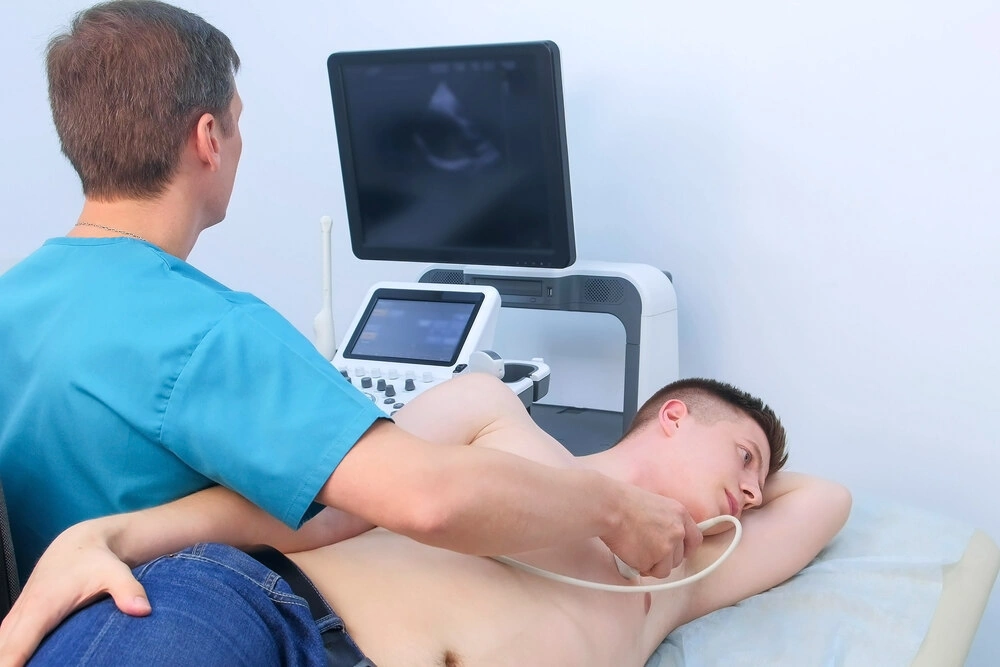Echocardiogram
Echocardiogram
A Non-Invasive Tool for Assessing Heart Health
When your heart needs to be evaluated closely and effectively, an echocardiogram may be an important diagnostic tool. Phoenix Heart offers multiple types of echocardiogram tests to help your cardiologist deliver the best cardiac care possible. For an echocardiogram, call or book an appointment with one of the convenient Phoenix Heart offices in Glendale, Avondale, Anthem, Buckeye, Laveen, Cottonwood, and Black Canyon City, Arizona.

Echocardiogram Q & A
What is an Echocardiogram?
An echocardiogram, also called an echo or cardiac ultrasound, is a diagnostic study that uses ultrasound technology to visualize the structures and evaluate the function of the heart.
An echocardiogram is used to help your cardiologist determine:
- The size of your heart
- How effectively your heart is pumping
- The function of your heart valves
- The quality of your heart muscle
- The flow of blood through your heart
- Changes or progression of a heart condition
An echocardiogram is also used to evaluate underlying causes of cardiac symptoms, such as chest pain or difficulty breathing. It’s a pain-free, risk-free way to effectively evaluate your heart health.
What are the Types of Echocardiogram?
In addition to a regular echocardiogram, Phoenix Heart also offers two types of specialized echocardiogram studies. These include:
-
Stress Echocardiogram:
This diagnostic study combines cardiac ultrasound and a treadmill to evaluate the function of the heart while it’s under controlled, exercise-induced stress. Your heart is monitored throughout the process, using electrodes attached to your chest. -
Bubble Echocardiogram:
This diagnostic study uses an injection of agitated saline solution during an echo to visualize abnormalities of the heart structures, or problems with blood flow through the chambers of the heart. The agitated solution creates microbubbles that can be traced through the heart, but do not pose any risk to you.
These tests may be ordered by your cardiologist or primary care physician
if you have symptoms that may suggest your heart muscle may not be getting enough oxygen, or that you have abnormalities in the structures of your heart.

What Conditions Can an Echocardiogram Help Diagnose?
Different types of echocardiogram can help diagnose or monitor the progression of conditions such as:
- Congestive heart failure
- Valve or chamber malformations
- Valve leakage or regurgitation
- Abnormal openings between heart chambers
- Blood clots in or around the heart
- Weakened or enlarged heart muscle
- Infection in the lining or muscle of the heart
- Blood vessel malformations in and around the heart
- Tumors or infectious growth on heart valves
If you’ve previously been diagnosed or have symptoms of any of these conditions, an echocardiogram can give a real-time view of your heart that can help determine the best approach to your cardiac treatment.
To schedule an echocardiogram to evaluate your heart health, call Phoenix Heart today or use the online booking tool.
